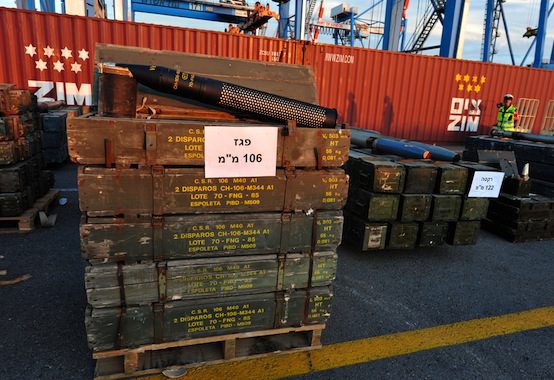Authorizing Military Action Against Iran Would Be Folly

Robert George and Michael Paulsen have a terrible idea:
We have a proposal. Despite his dissembling on health care and some other important issues, we take President Obama at his word when he says that he will not permit Iran to acquire nuclear weapons. In addition to enacting economic sanctions to be triggered by the failure, six months from now, to achieve a genuine agreement barring Iranian nuclear-weapons capability, Congress should, now, consider exercising its power under the Declare War Clause of the Constitution to authorize, prospectively, the president to use all necessary and appropriate military force against the Tehran regime if and when the president determines that Iran is making progress toward development of a nuclear weapon, to deter and prevent development of such a weapon.
Fortunately, Congress doesn’t seem likely to follow this advice at the moment, but it’s worth reviewing the many reasons why doing so would be a horrible mistake. One obvious reason is that it would sabotage diplomacy with Iran, and thus make a negotiated solution to the nuclear issue less likely. Giving the president an open-ended authorization to attack Iran at his discretion is the very same error that Congress made on Iraq in 2002, and a future administration would then be free to start a war with Iran as long as he could find some pretext for it. As long as the authorization remained in force, Iran would have every reason to assume that any concessions it made would not prevent a future attack, and so it would see no reason to continue negotiating. Depending on how the resolution was written, it might authorize the president to attack Iran on fairly flimsy grounds. Considering the maximalist position of the Kirk-Menendez sanctions bill, it is easy to imagine that the authorization resolution would contain language that sets a very low bar for military action, or uses language that is ambiguous enough that a future administration would be able to exploit it to justify an attack under almost any circumstances. Another obvious flaw is that would-be preventive war against Iran won’t prevent Iran from acquiring nuclear weapons, but will give their leaders a strong incentive to build them. Authorizing such a war in advance isn’t likely to make Iran more accommodating on this issue, but instead makes both a war with Iran and a post-war nuclear-armed Iran more likely.
Because the authorization debate would be taking place well in advance of any possible military action, it is likely that there would not be much consideration given to the consequences of a war with Iran. Since the prospect of it will seem so far off in the future, it will be easier for members of Congress to vote to authorize force in order to demonstrate their “toughness” on Iran without having given much thought to the costs that a real war would have. Some members might end up voting for authorization cynically on the assumption that the authority will never be used, and others will treat a debate over authorization as a way to have things both ways by claiming that they don’t really favor war but that they want to give president another “option.” If military action isn’t imminent, there will probably be little public interest in the authorization debate, and that means that Congress will be opening the door to a new war without first gaining the support of the public.
Finally, preventive war is inherently unjust and illegal. A preventive war cannot be waged as a last resort, and it would be fought to eliminate a threat that does not yet exist. There is nothing in international law that allows such military action, and it makes a mockery of the “international order” that so many Iran hawks claim to value. In addition to all of the other reasons why it would be foolish and dangerous to do this, it would simply be wrong for Congress to authorize such a war.
Comments